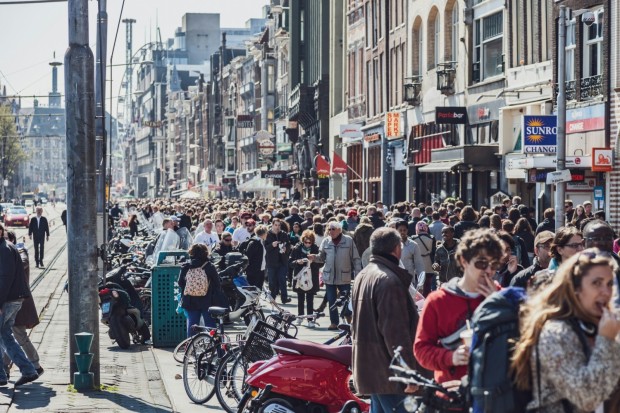As the world slowly reopens its doors to travelers, many are eagerly embracing the concept of "revenge travel" to satisfy their long-postponed wanderlust. These tourists are going to exciting destinations, reuniting with loved ones in their favorite cities, and making up for the adventures they missed during the pandemic.
But the question remains: Is revenge travel still a prevalent trend in the post-pandemic era?

Revenge Travel Still Alive in the Post-Pandemic Era
In 2021, the term "revenge travel" became popular. It means taking a trip that was delayed because of the pandemic. Forbes reported that revenge travel can be going on an exciting vacation, staying at a wellness center, visiting a favorite city, or simply spending time with friends and family nearby. It is all about making up for trips that were missed during the global pandemic.
The report also stated that the Transportation Security Administration (TSA) says that more people are going through airport security checkpoints, showing that more people are traveling. Airports worldwide are also seeing more visitors, especially as more people get vaccinated and return to their usual work routines.
However, the current travel situation is a bit mixed. In some places, travel numbers are not as high as they were before the pandemic, according to the Airports Council International Europe. Additionally, a study by Morning Consult found that some travelers are being held back by the high cost of travel. People surveyed said they were frustrated by travel problems like delays and disruptions.
Interestingly, the study also found that Generation Z travelers are booking more trips, and their travel experiences might soon be just as exciting as those of millennials.
Read Also: Skagway Unveiled: A Gateway to Alaska's Rich History and Adventurous Wonders With Alaska Shore Tours
Online Travel Bookings in the Philippines Surge, Predicts Google
Google reported an impressive 88 percent growth in online travel bookings in the Philippines from 2022 to 2023, according to their e-Conomy Southeast Asia 2023 Report. These bookings cover airfare, hotel reservations, and vacation rentals, marking the highest growth among various sectors in the digital economy.
Google anticipates that the travel sector is well on its way to reaching a gross merchandise value (GMV) of $3 billion this year, according to ABS-CBN News. Furthermore, it is projected to maintain an 18 percent compound annual growth rate (CAGR) until 2025, reaching a remarkable $4 billion GMV. However, the report highlights that e-commerce will remain the primary driver of growth in the Philippine digital economy. Google predicts that the e-commerce sector will soar to $24 billion by 2025, with a 21 percent CAGR.
In addition, online media company also reported that online media, encompassing advertising, gaming, video, and music on demand, is expected to grow by $3 billion GMV in 2023, with a 13 percent CAGR. By 2025, it is forecasted to reach $5 billion at a 19 percent CAGR. Meanwhile, the transportation and food delivery sectors are also set to thrive. Projections indicate they will reach $2 billion GMV in 2023, with an ongoing growth rate of 19 percent CAGR until 2025.
Google attributes the momentum in mobility, including the return to in-person work, increased travel, dining out, and traditional in-store shopping, to the rising digital transactions in the transportation sector.
The future looks promising for the Philippine digital economy, with Google foreseeing it potentially reaching up to $150 billion by 2030, largely driven by the expanding e-commerce landscape.
Related Article: American Traveler Permanently Barred from the Philippines for Alleged Disrespectful Conduct
This article is copyrighted by Travelers Today, the travel news leader



